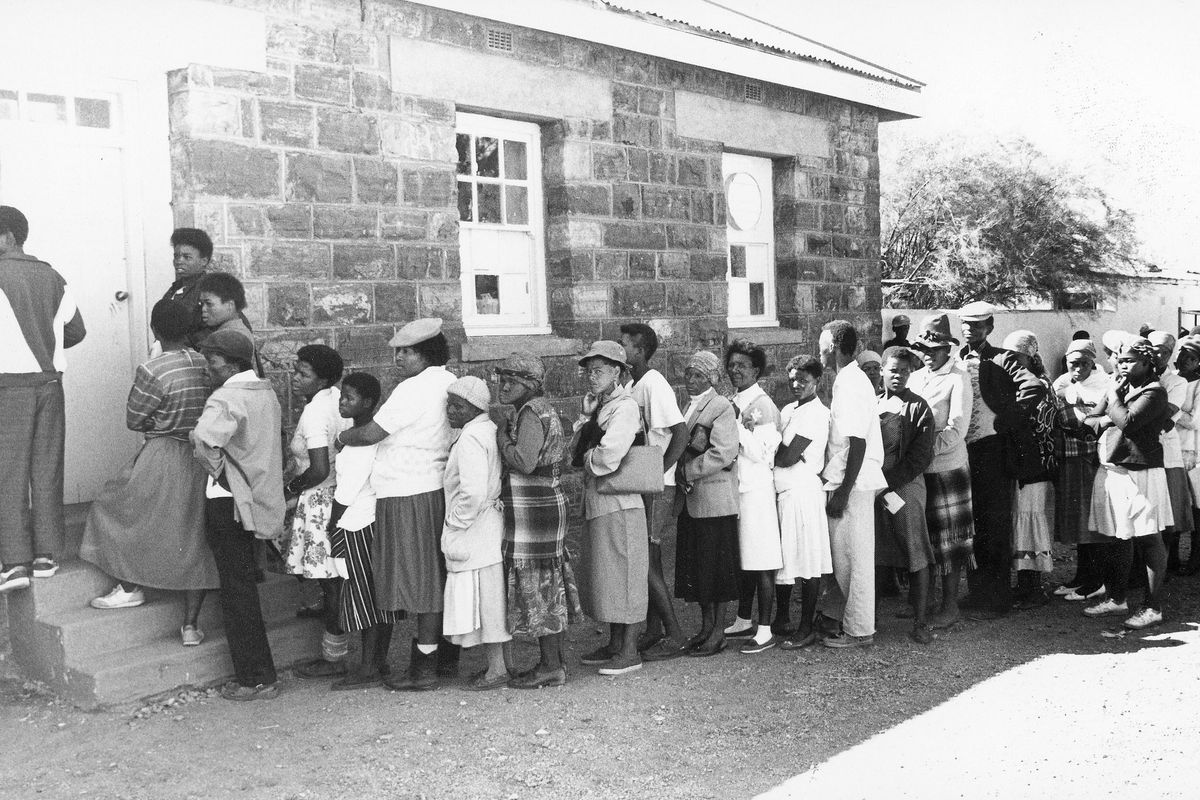
Voters in long queues during the 1994 non-racial general elections on April 27, 1994, in South Africa. Today, in 2021, the country commemorates 27 years of freedom.
Photo by Rapport/Gallo Images via Getty Images
SEARCH

Voters in long queues during the 1994 non-racial general elections on April 27, 1994, in South Africa. Today, in 2021, the country commemorates 27 years of freedom.
Here is a summary of important dates, stats and events that served as a turning point in South Africa's biggest political transition — the first democratic election that took place on April 27, 1994.